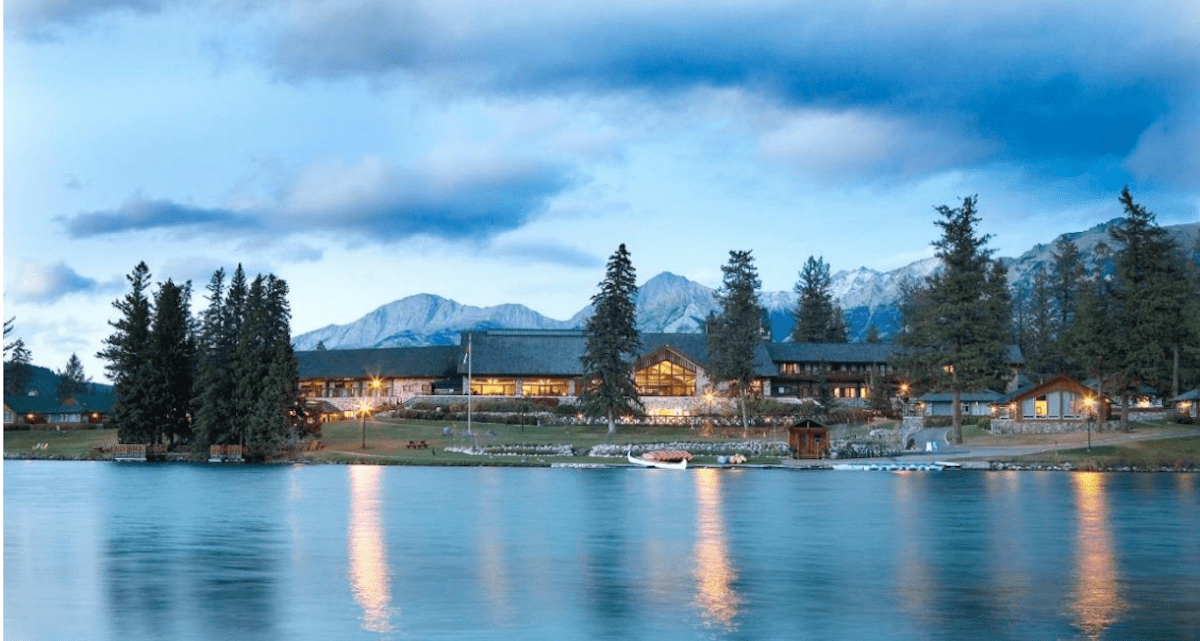FAIRMONT CELEBRATES 30th ANNIVERSARY
AS A GLOBAL LEADER IN SUSTAINABILITY
As a pioneering force in the hospitality industry, Fairmont was the world’s first luxury hotel brand to embrace environmental stewardship
Fairmont Hotels & Resorts is celebrating the 30th anniversary of its award-winning Fairmont Sustainability Partnership, now part of Accor’s Planet21 program. In continuing to set the industry standard in sustainable practices, Fairmont along with Accor has announced the goal to reach net zero carbon emissions by 2050. A commitment has also been made to eliminate any remaining single-use plastics in guestrooms, meeting areas, and restaurants across all hotels by the end of 2022.
“Thirty years ago, our forward-thinking team literally wrote the book on environmental sustainability in the hospitality industry with the very first edition of our famed Green Partnership Guides,” said Sharon Cohen, Vice President, Fairmont Brand. “Today, as part of Accor, we are working on new ways to push the envelope even further in our efforts to combine leading operational efficiencies aimed at reducing overall impact on the planet, with innovative programs promoting responsible tourism. At Fairmont, we feel both a responsibility and a fervent ambition to keep the most beautiful destinations of the earth healthy, strong and thriving for future generations to enjoy.”
The brand’s environmental platform, once described by National Geographic Traveler as “the most comprehensive environmental program in the North American hotel industry”, continues to focus on energy and water conservation, reductions in waste generation and carbon emissions, the elimination of single-use plastics, sustainable practices related to design, proactive construction and procurement policies, as well as community outreach through local groups and partnerships.
The majority of luxury travelers are increasingly concerned with the impacts of tourism on the planet and ways in which companies are proactively reducing their overall environmental footprint. Research from Fairmont and Accor studies indicate that four out of five travelers view environmentally sustainable practices and locally sourced kitchen ingredients as important, while 84 per cent consider it important that hotels recommend experiences that are not detrimental to the local community.
“Our guests recognize that changes need to be made if the qualities that attract them to an extraordinary destination are going to last – and they rely on us to drive that change,” said Ms. Cohen. “At Fairmont, each one of our hotels and resorts is intertwined with its community, continuously evolving how we do business, and engaging our employees, customers, partners and community members to create stronger, more sustainable futures for our local environments and economies.”
SUSTAINABILITY TIMELINE – A SNAPSHOT
• 1991 – Fairmont Hotels & Resorts (then Canadian Pacific Hotels) is the first hotel company in the world to launch a comprehensive environmental mandate. The pioneering program, called the Green Partnership Program, is emulated by other hotel brands in the decades that follow.
• 1990s – Fairmont develops its first Green Partnership Guide, a practical handbook to help its hotels and other businesses green their operations.
• 1990s – Fairmont launches Eco-Meet, an environmentally-friendly conferencing program intended to minimize impact to the environment during meetings, conferences and similar events; the first hotel to offer Eco-Meet was Fairmont Chateau Lake Louise.
• 2001 – Fairmont releases the second edition of its environmental how-to book, the Green Partnership Guide, to allow other travel companies to profit from the cost saving initiatives that Fairmont has developed over the last decade.
• 2005 – Fairmont continues to demonstrate genuine concern for the planet by launching Eco-Innovations, a collection of locally focused projects that encourage colleague learning and guest interaction; each signature project addresses the needs of the local ecosystem.
• 2006 – Fairmont receives the Global Tourism Business Award from the World Travel & Tourism Council (WTTC) and is recognized as the world’s finest example of responsible tourism and sustainable operations in the hotel industry.
• 2006 – Fairmont announces a partnership with the World Heritage Alliance, a joint initiative of the United Nations Foundation and Expedia, Inc., to promote conservation, sustainable tourism, and economic development for communities located in and around World Heritage sites.
• 2006 – Fairmont partners with the Pembina Institute to reduce its greenhouse gas emissions through the purchase of wind power energy offsets.
• 2007 – Forwarded by world-renowned environmentalist Dr. David Suzuki, Fairmont launches the third edition of its acclaimed Green Partnership Guide, a comprehensive how-to text for companies looking to “green” their operations. The brand further establishes itself as an environmental ambassador and industry pioneer on responsible tourism practices and sustainable hotel management.
• 2009 – Fairmont joins the World Wildlife Fund (WWF) Climate Savers Program and commits to reducing its operational CO2 emissions by 20 per cent below 2006 levels.
• 2009 – Fairmont announces the worldwide removal of threatened fish species like Chilean Sea Bass and Bluefin Tuna from restaurant menus; the brand also aligns with reputable seafood watch organizations on a local level to ensure guests continue to be provided with a comprehensive selection of sustainable seafood choices.
• 2010 – Fairmont makes a global commitment to have its hotels become members of the Green Key Eco-Rating Program (Green Key).
• 2013 – Fairmont again raises the bar in the area of sustainability with a global refresh of its Fairmont Sustainability Partnership. Expanding its scope and taking a more holistic approach to operational responsibility, the expanded program provides greater balance around the company’s economic, environmental and social priorities.
• 2015 – Fairmont announces that it has reached its goal to reduce operational CO2 emissions by 20 per cent below 2006 levels. The pledge was made in 2009 as part of the WWF Climate Savers Program. Fairmont becomes the first company in the hospitality industry to meet this ambitious environmental goal.
• 2015 – Fairmont broadens its bee programming with the formal introduction of its Bee Sustainable program; in addition to nurturing the habitats of honeybees, the program expands to include the care of wild mason bees with the introduction of new pollinator bee hotels at Fairmont locations worldwide.
• 2018 – Several Fairmont properties around the world install water filtration systems in guest rooms in order to eliminate the use of disposable plastic water bottles and minimize waste and hazards to marine life.
• 2019 – Fairmont Maldives Sirru Fen Fushi unveils a series of new sculptures within the resort’s Coralarium – the Maldives’ first and only coral regeneration project in the form of an underwater art installation. The Coralarium structure and the sculptures within act as an artificial reef, encouraging local marine life to make it a home.
About Fairmont
Fairmont Hotels & Resorts is where occasions are celebrated and history is made. Landmark hotels with unrivalled presence, authentic experiences and unforgettable moments have attracted visitors to Fairmont and its destinations since 1907. The Plaza in New York City, The Savoy in London, Fairmont San Francisco, Fairmont Banff Springs and Fairmont Peace Hotel in Shanghai are but a few of these iconic luxury hotels, forever linked to the special places where they reside. Famous for its engaging service, grand public spaces, locally inspired cuisine and celebrated bars and lounges, Fairmont promises the grandest of moments that will be remembered long after any visit. With a worldwide portfolio of more than 80 hotels, Fairmont also takes great pride in its deep community roots and leadership in sustainability. Fairmont is part of Accor, a world leading hospitality group consisting of more than 5,100 properties and 10,000 food and beverage venues throughout 110 countries.
fairmont.com | all.accor.com | group.accor.com
Media release and image provided by Maria-Paula Galia, Wild Child Group.






